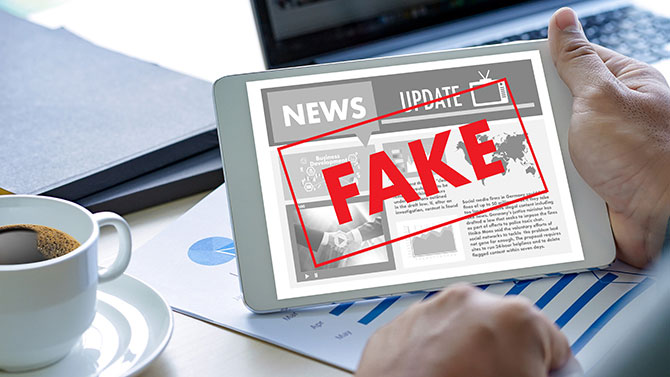Table of Contents
ToggleUnderstanding Fake News
Definition of Fake News
When we talk about fake news, we’re referring to false or misleading information presented as news. This can be anything from totally invented stories to genuine news stories that are distorted or manipulated to mislead readers. Fake news is designed to attract attention and stir controversy, often prioritizing sensationalism over accuracy.
Historical Context
Fake news isn’t a modern phenomenon; it’s been around for centuries. Historically, misinformation was spread through pamphlets, rumors, and sensationalist newspapers. With the advent of the internet Illi nois news365.com, the scale and speed at which fake news spreads have exponentially increased, making it a more pressing issue in today’s digital age.
Types of Fake News
Misinformation
Misinformation involves false or misleading information shared without malicious intent. For example, a person might share a rumor they believe to be true, but it turns out to be inaccurate. While not intentionally harmful, misinformation can still spread widely and cause confusion.
Disinformation
Disinformation is deliberately falsified information shared with the intent to deceive. This includes creating false stories or altering facts to push a specific agenda. For instance, political groups might use disinformation to sway public opinion or undermine opponents.
Malinformation
Malinformation refers to the sharing of truthful information but with malicious intent. This could include releasing private information to damage someone’s reputation or exploiting sensitive information for personal gain.
The Impact of Fake News
Social and Political Effects
Fake news has significant social and political implications. It can sway elections, incite violence, and polarize communities. By distorting facts, fake news can shape public opinion in ways that undermine democratic processes and fuel societal divisions.
Economic Consequences
The economic impact of fake news is also considerable. False information can lead to market manipulation, affecting stock prices and causing financial instability. Businesses can suffer from reputational damage and loss of consumer trust due to fake news stories.
Psychological Impact on Individuals
On a personal level, fake news can create confusion, fear, and anxiety. People who consume fake news may experience heightened stress or become distrustful of legitimate media sources. This psychological toll can erode mental well-being and foster a sense of helplessness.
Recognizing Fake News
Common Characteristics
Recognizing fake news can be challenging, but there are common traits to watch out for. These include sensational headlines, lack of credible sources, and emotional language designed to provoke a strong reaction. If a story seems too outrageous to be true, it might be worth double-checking.
How to Fact-Check Information
Using Reliable Sources
One of the best ways to combat fake news is by consulting reliable sources. Reputable news organizations and fact-checking websites can help verify the authenticity of a story. Look for information from sources with a history of accuracy and credibility.
Cross-Referencing Facts
Cross-referencing facts involves checking multiple sources to confirm the accuracy of a story. If several reliable outlets report the same information, it’s more likely to be true. Conversely, if a story is only covered by dubious sources, it might be a red flag.
The Role of Social Media
Platforms and Algorithms
Social media platforms play a significant role in the spread of fake news. Algorithms prioritize content that generates engagement, often amplifying sensational or misleading stories. Understanding how these algorithms work can help users be more critical of what they see online.
Viral Spread and Echo Chambers
Fake news often spreads quickly due to its viral nature. Social media creates echo chambers where users are exposed to information that reinforces their existing beliefs. This can make it harder for individuals to recognize false information and challenge their own biases.
Combating Fake News
Strategies for Individuals
Individuals can take several steps to combat fake news. This includes being skeptical of sensational headlines, verifying information before sharing, and educating themselves about media literacy. By becoming more informed consumers of news, people can reduce the spread of false information.
Educational Initiatives
Educational initiatives aimed at improving media literacy can help individuals better understand and identify fake news. Schools and community programs that teach critical thinking and fact-checking skills can empower people to navigate the information landscape more effectively.
Policy and Regulation
Governments and organizations are also working on policies to address fake news. This includes regulations that hold platforms accountable for the spread of misinformation and initiatives to promote transparency and accountability in news reporting.
The Future of Fake News
Emerging Trends
The landscape of fake news is constantly evolving. Emerging trends include the use of deepfakes and sophisticated algorithms to create more convincing misinformation. Staying informed about these trends can help individuals and organizations stay ahead of the curve.
Innovations in Detection
Technological advancements are being developed to detect and combat fake news. Innovations such as AI-powered fact-checking tools and advanced algorithms can help identify and flag false information more effectively. These tools are crucial in the fight against misinformation.
Conclusion
Fake news is a pervasive and complex issue that affects individuals, communities, and societies at large. By understanding what fake news is, recognizing its impact, and taking proactive steps to combat it, we can contribute to a more informed and less polarized world. Stay vigilant, fact-check regularly, and always question the source of the information you consume. In a world where misinformation is increasingly sophisticated, being an informed consumer of news is more important than ever.

